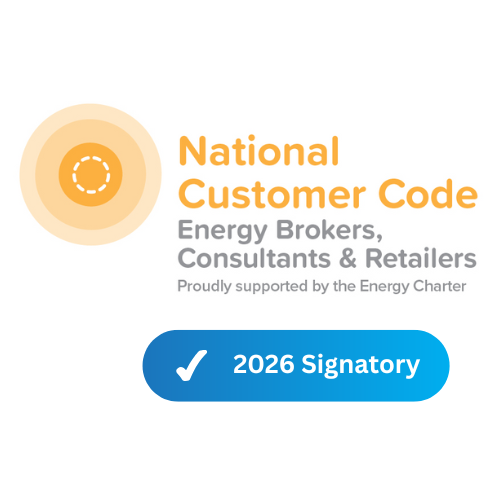30 September 2024
Retail Electricity Market – Consumer Protection for C&I vs SME and Residential Market
Blog
In Australia, small to medium-sized enterprises (SMEs) and residential retail electricity and natural gas customers enjoy greater consumer protection than large commercial and industrial (C&I) customers due to several key factors. The primary difference lies in regulatory frameworks and consumer protection measures established to safeguard smaller customers, reflecting their relative vulnerability in the energy market.
Let’s explore how these protections differ:
In Australia, small to medium-sized enterprises (SMEs) and residential retail electricity and natural gas customers enjoy greater protection than large commercial and industrial (C&I) customers due to several key factors. The primary difference lies in the regulatory frameworks and consumer protection measures established to safeguard smaller customers, reflecting their relative vulnerability in the energy market.
Here’s how these protections differ:
1. Regulatory Frameworks and Codes of Conduct
Residential and SME Customers
These customers are covered by the National Energy Customer Framework (NECF), which applies across most Australian states and territories, along with specific state-based regulations such as the Victoria Energy Retail Code. The NECF ensures that residential and SME customers have:
- Access to electricity and gas services.
- Protections against disconnections due to non-payment.
- Transparent billing information.
- Cooling-off periods for contracts.
- Protections for customers in financial hardship, including flexible payment plans.
Large C&I Customers
In contrast, C&I electricity or natural gas contracts are negotiated on a bespoke basis and do not fall under the NECF. These customers are expected to have the capability to negotiate contract terms directly with energy retailers and manage associated risks.
2. Consumer Protections
Residential and SME Customers
The Australian Energy Regulator (AER), alongside state regulatory bodies like the Essential Services Commission in Victoria, ensures compliance with consumer protection regulations for residential and SME customers. They enjoy protections such as:
- Price caps on default offers, including the Default Market Offer (DMO), to prevent price gouging.
- Easier access to dispute resolution through ombudsman services in each state.
- Protection from unfair contract terms and mandatory clear communication of price changes.
- Retailers must comply with stringent consumer laws, enforced by the Australian Competition and Consumer Commission (ACCC), which ensures retailers do not engage in deceptive marketing or unfair practices.
The ACCC plays a crucial role in ensuring competition stays healthy and smaller customers are not subject to unfair price manipulation or misleading offers.
Large C&I Customers
These customers have fewer automatic protections and typically rely on commercial negotiations with energy retailers. The ACCC’s oversight still benefits large C&I customers by preventing anti-competitive practices in the wholesale energy markets, helping to ensure fair pricing overall.
3. Tariff and Price Structures
Residential and SME Customers
Pricing for these customers is more regulated, with default market offers (DMOs) and standardized terms in place to protect them from unfair pricing practices. Government tools such as Energy Made Easy assist them in comparing energy offers.
Large C&I Customers
In contrast, large C&I customers operate in a more deregulated market, where they negotiate energy contracts directly with retailers, often with complex pricing structures tied to wholesale energy prices.
4. Financial Hardship Programs
Residential and SME Customers
Retailers must offer hardship programs that provide support to customers struggling to pay their bills, such as flexible payment arrangements. These protections are a core part of the NECF and help prevent disconnection for vulnerable customers.
Large C&I Customers
There are no specific hardship protections for C&I customers. However, they can negotiate payment terms with retailers on a case-by-case basis.
5. Disconnection Protections
Residential and SME Customers
There are strict rules regarding disconnection for non-payment, with retailers required to work with customers in financial hardship before proceeding with disconnection.
Large C&I Customers: Disconnection terms for large businesses are governed by the specific contracts in place, with fewer regulatory protections compared to smaller customers.
| Category | Residential and SME Customers | Large C&I Customers |
| Regulatory Frameworks and Codes of Conduct |
|
|
| Consumer Protections |
|
|
| Tariff and Price Structures |
|
|
| Financial Hardship Programs |
|
|
| Disconnection Protections |
|
|
In Summary
Residential and SME customers are offered greater protections under Australian energy regulations, particularly under the NECF and through the ACCC’s enforcement of consumer protection laws. These protections include regulated pricing, hardship programs, and stricter rules around disconnections.
In contrast, large C&I customers negotiate more bespoke agreements and face less regulatory oversight but still benefit from the ACCC’s role in promoting competition and preventing anti-competitive behaviour in the energy market.
Concerned about your business energy contract?
Want to learn more about the consumer protections available to you as a business electricity user in Australia? Or are you interested in signing up for or renewing your contract? Get in touch with Leading Edge Energy by emailing us at info@leadingedgeenergy.com.au or calling us at 1300-852-770 for an obligation-free consultation.
We source, analyse, compare and rank commercial, industrial and multisite energy quotes. Obligation Free.
Chat with one of our experienced consultants today and get the insights your business needs to help manage the risks associated with volatile electricity and natural gas markets. Our energy procurement service is obligation-free and provides a time-saving way of securing lower energy rates from our panel of seventeen energy retailers.

Get advice from our Energy Management Consultants

James Iliffe
Managing Director
Get in Touch
Feel free to call or e-mail us. Or just fill in the form below and we’ll contact you for an obligation-free discussion.
Are you ready to save on business energy costs?
Get Started
Leading Edge Energy is proud to be a signatory of the National Customer Code for Energy Brokers, Consultants and Retailers.